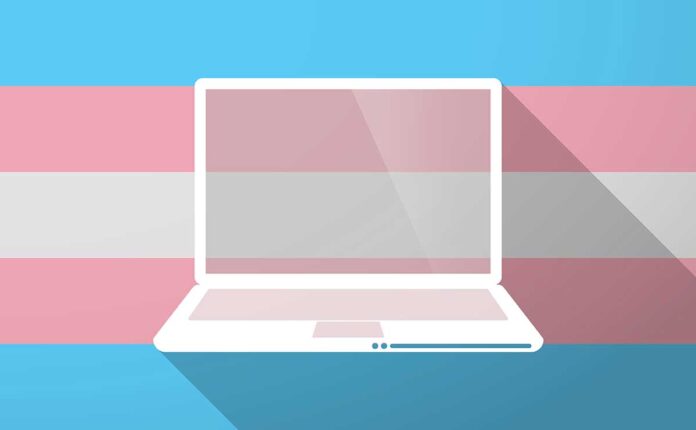As I sit down to write this column. I am picturing myself in a rocking chair on the porch, as if I am about to share stories of the hardships we faced during the Great Depression on the old farm or some such. You see, I was musing the other day on just what the trans community is now, versus what it was when I first found it, and what change this has wrought.
You won’t, however, find me threatening to turn the garden hose on anyone, lest they avoid my front lawn. No, while times were different then and had certain difficulties that I’ll get into below, I am not going to proclaim how the trans kids these days have it easy. How can I even consider this, in a time when the far right has practically declared open season on transgender people, and where we see record number of anti-transgender murders?
The big difference is that I feel our community was a smaller one then. I don’t mean in sheer numbers, though, yes, I suspect far less of us realized and nurtured our trans selves way back when. No, I mean in how a township is smaller than the big city, where everything was a lot more quaint and provincial way back when.
As I’ve discussed before more than a few times, there was little available when I was growing up for information about being transgender. There was no search engine I could type the word transgender into, and the search would not return the 406,000,000 I just got from my browser.
Of course, there wasn’t a browser then either. Or, frankly, an Internet. Likewise, home computers were still a few years off, too, and computers in general were expensive, bulky cabinets with tape drives. The notion of sitting down in your house and tapping into the World Wide Web was still in the realm of The Jetsons.
It was a cartoon. Look it up.
Likewise, there was nothing in the local library. The card catalog at the local library — yes, this is how you found what books were there back then — had nothing on the topic to be found under “trans-.” No, I did not ride a dinosaur to the library either.
Rather, most of what I learned came either from my mother’s tabloids, which focused on trans people as scandal and gossip, or from my father’s “girlie magazines,” which, in the few times they included any trans materials, focused more on the erotic side of trans lives, albeit though a non-trans lens. Much like the tabloids, transgender people were still aberrant in dad’s magazine, but we had more than a tinge of sexual deviancy.
The final source was courtesy of my third parent, the television. This was thanks to trans-related storylines on some of the popular sitcoms of the day, such as the Jeffersons or All in the Family.
These stories, too, treated trans people as freaks, creating plot lines that typically evolved around the threat to a star’s masculinity coupled with a maudlin storyline that amped up a viewer’s feelings of pity for a trans character.
As you can gather, in a world where you would be hard pressed to even find our stories and, what’s more, where our stories were not told by us, for us, it was very hard to even begin to see yourself as anything more than some freak, destined to be an outcast with a terrible, life-destroying script. A creature of scandal, salaciousness, and sorrow.
When I began the road to understanding who I was, it became all that more important to find community. I needed to find others who could help me see who I truly was, and offer support and resources I lacked.
Once again, this is where that smallness creeps in. There were, at the time, very few large resources. I was fortunate enough to find a transgender-specific boutique about a half hour from me, and from there discovered a support group an hour or so further away that met in the back of a local hotel once a month.
The local group, like many others at the time, was really made up of a couple handfuls of members, and maintained a very insular existence. There were both spoken and unspoken ways you were expected to be, and transgressing these norms would often make your membership all but impossible.
There were also some national organizations, albeit these were more focused on local chapters. Likewise, you could find a couple resource clearing houses out there. Beyond this, there was not a whole lot to be found. We as a community existed, but in small, often regimented pockets.
Then the Internet happened. We could, all of a sudden, find each other. BBS (Computer Bulletin Board Services) sprung up, then dedicated spaces on the commercial services like CompuServe and America Online. Soon, the web exploded with personal sites, resources, and beyond. The community moved from the rear banquet room of the Holiday Inn to a world-wide, interconnected world where, yes, your home computer can bring up 406,000,000 hits on a single word: transgender.
Yes, times have changed, but it’s not an issue of who has things easier.
That is a pointless argument in time when we are all still having it very, very hard. In some ways, in fact, we may have had it easier in times when people were far less knowledgeable of us and, therefore, less likely to develop organized fights against our very existence.
Nevertheless, times have changed — and what’s more, it will continue to. It is up to all of us to shape it into something we can use.
Gwen Smith did not walk uphill in the snow to get to school. You’ll find her at www.gwensmith.com/.
